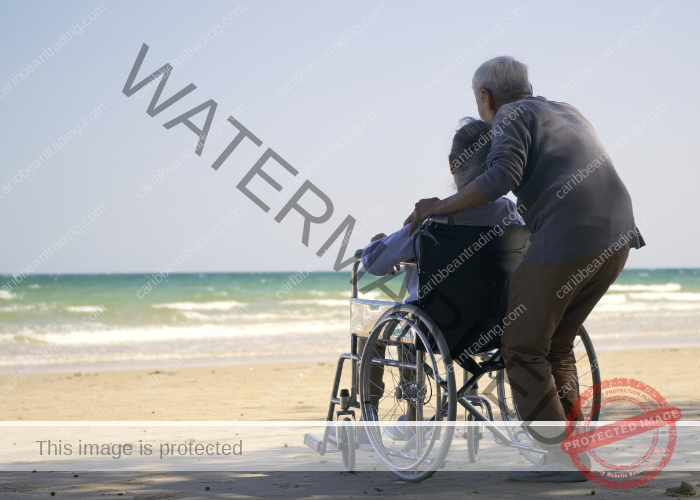Caribbean Travel Tips
Traveling to the Caribbean with Seniors: Yes or No?
The Caribbean, with its pristine beaches, lush landscapes, and vibrant cultures, is a dream destination for many. However, when planning a trip with elderly family members, there are important considerations to weigh before packing your bags. From health concerns to accessibility, understanding the pros and cons of traveling to the Caribbean with seniors can help ensure a comfortable and enjoyable trip. This article will explore whether traveling to the Caribbean with seniors is a good idea and highlight key factors to consider.
Accessibility and Comfort
One of the primary concerns when traveling with older adults is accessibility. Fortunately, many Caribbean islands have recognized the need to cater to travelers with mobility issues. Popular destinations such as Aruba, Puerto Rico, and Barbados have invested in making tourist areas, hotels, and public transportation more accessible. This includes ramps, elevators, and wheelchair-friendly beaches. When booking accommodations, it’s essential to check for accessibility features such as ground-floor rooms, elevators, or shuttle services that can make moving around easier.
However, not all Caribbean islands are as well-equipped. Some more remote or less developed islands may have limited infrastructure, making it difficult for seniors to get around comfortably. Roads may be uneven, public transportation less reliable, and attractions may not be as accommodating. Therefore, researching the destination’s accessibility is crucial before making a decision.
Weather and Health Considerations
The tropical climate of the Caribbean is a major draw, but it can also pose challenges for older adults, especially those with health concerns. The heat and humidity can be taxing on the body, increasing the risk of dehydration, heat exhaustion, or heatstroke. It is vital to ensure that seniors stay hydrated, wear lightweight clothing, and take frequent breaks in shaded or air-conditioned areas.
Additionally, it’s important to consider the healthcare facilities available on the island. While some Caribbean nations have top-notch medical services, others may have limited resources. If the senior traveler has existing medical conditions, ensuring that there is access to reliable healthcare is a must. Checking if the destination has pharmacies, hospitals, or clinics within easy reach is also essential. Travelers should bring enough medications to last throughout the trip and keep a list of their prescriptions handy in case of an emergency.
Pace of Travel and Activities
One of the great joys of visiting the Caribbean is the opportunity to engage in outdoor activities, from snorkeling and hiking to exploring historic landmarks. However, when traveling with seniors, it’s important to consider the pace of the trip. Many elderly travelers may prefer a slower itinerary that allows them to rest and enjoy their surroundings without feeling rushed. It’s advisable to plan fewer excursions and give ample time for relaxation.
When choosing activities, be mindful of the physical demands. Some tours or excursions may require long walks or standing for extended periods, which can be difficult for seniors with limited mobility or stamina. Opt for activities that can be easily adapted to the traveler’s physical condition, such as scenic boat tours, cultural performances, or visiting local markets. Private tours may also offer more flexibility to cater to seniors’ needs.
The Benefits of Caribbean Travel for Seniors
Despite the challenges, there are numerous benefits to Caribbean travel for seniors. The warm weather can be soothing for those with joint pain or arthritis, as the sun and sea offer natural relief. The leisurely pace of life in many Caribbean islands can be a perfect match for seniors looking to unwind and escape the hustle and bustle of daily life.
Additionally, the cultural richness of the Caribbean provides seniors with opportunities to explore new cuisines, music, and traditions, keeping their minds engaged and stimulated. For history buffs, islands like Cuba and the Dominican Republic offer a deep dive into the colonial past and the influence of various cultures on the region’s development.
Social Interactions and Language Barriers
For seniors, social interactions can be an enriching part of travel. Many Caribbean islands are known for their friendly locals, who are often eager to share their culture with visitors. However, language barriers can sometimes pose a challenge, particularly on islands where English is not widely spoken. While English is the dominant language in many tourist hotspots like Jamaica and the Bahamas, Spanish-speaking countries such as the Dominican Republic or Cuba may require a bit of preparation in terms of communication.
It’s helpful to learn a few basic phrases in the local language or ensure that accommodations offer bilingual staff. Additionally, using translation apps or booking tours with English-speaking guides can enhance the experience and make interactions with locals more meaningful.
What to Consider if You Are Traveling from the United States
For U.S. citizens planning a trip to the Caribbean with seniors, there are specific factors to keep in mind. First, the proximity of the Caribbean to the U.S. is a significant advantage. Direct flights to many islands are relatively short, typically between 2 to 5 hours depending on the destination. This makes the Caribbean an appealing option for seniors who may not want to endure long-haul flights or deal with extensive jet lag.
Moreover, many Caribbean islands are U.S. territories or have strong ties with the U.S., such as Puerto Rico and the U.S. Virgin Islands. This means U.S. citizens do not need a passport to visit, simplifying travel logistics. Additionally, U.S. currency is accepted in these territories, which eliminates the hassle of currency exchange and can be reassuring for seniors who may not be comfortable managing foreign currency.
Health insurance is another consideration. Seniors traveling from the U.S. should verify whether their health insurance will cover medical expenses abroad. Medicare, for example, typically does not provide coverage outside the U.S. Purchasing travel insurance that includes medical coverage is highly recommended to avoid costly out-of-pocket expenses in case of illness or injury.
Finally, safety is a key factor. Although many Caribbean destinations are safe for tourists, it’s important to remain vigilant and avoid areas with higher crime rates. Seniors may be more vulnerable to petty theft or scams, so it’s essential to take basic precautions, such as keeping valuables secure, staying in well-lit areas, and using reputable transportation services. If you end up deciding that it would be best not to travel with an elderly family member, there are many quality options such as in-home care Memphis or nearby cities. These places are well equipped so that your family member can be well cared for while you are away for a few days.
Packing Tips for Seniors
When packing for a Caribbean trip with seniors, comfort and convenience should be top priorities. Lightweight, breathable clothing is essential to cope with the tropical climate, and seniors should also pack protective gear like wide-brimmed hats and sunglasses to shield them from the sun. Comfortable walking shoes are a must, especially if the itinerary includes exploring towns or natural sites.
Don’t forget to pack essential medications and a small first aid kit with items like pain relievers, bandages, and sunscreen. For seniors with dietary restrictions, packing snacks or supplements can be helpful, as some islands may not have the same food options they are accustomed to.
Another important consideration is travel documents. In addition to passports (if required), seniors should carry copies of their prescriptions, a list of emergency contacts, and any necessary medical documentation.
Conclusion: Is Caribbean Travel a Good Idea for Seniors?
Traveling to the Caribbean with seniors can be an enriching experience, offering the perfect blend of relaxation, culture, and natural beauty. However, careful planning is necessary to ensure the trip is comfortable and safe. By considering factors such as accessibility, healthcare availability, and the pace of travel, seniors can enjoy all the benefits of a Caribbean vacation without the stress.
Whether it’s a leisurely beach vacation or a cultural exploration, the Caribbean offers something for everyone, including seniors. With the right preparation, a trip to the Caribbean can create lasting memories for families traveling with elderly loved ones.







